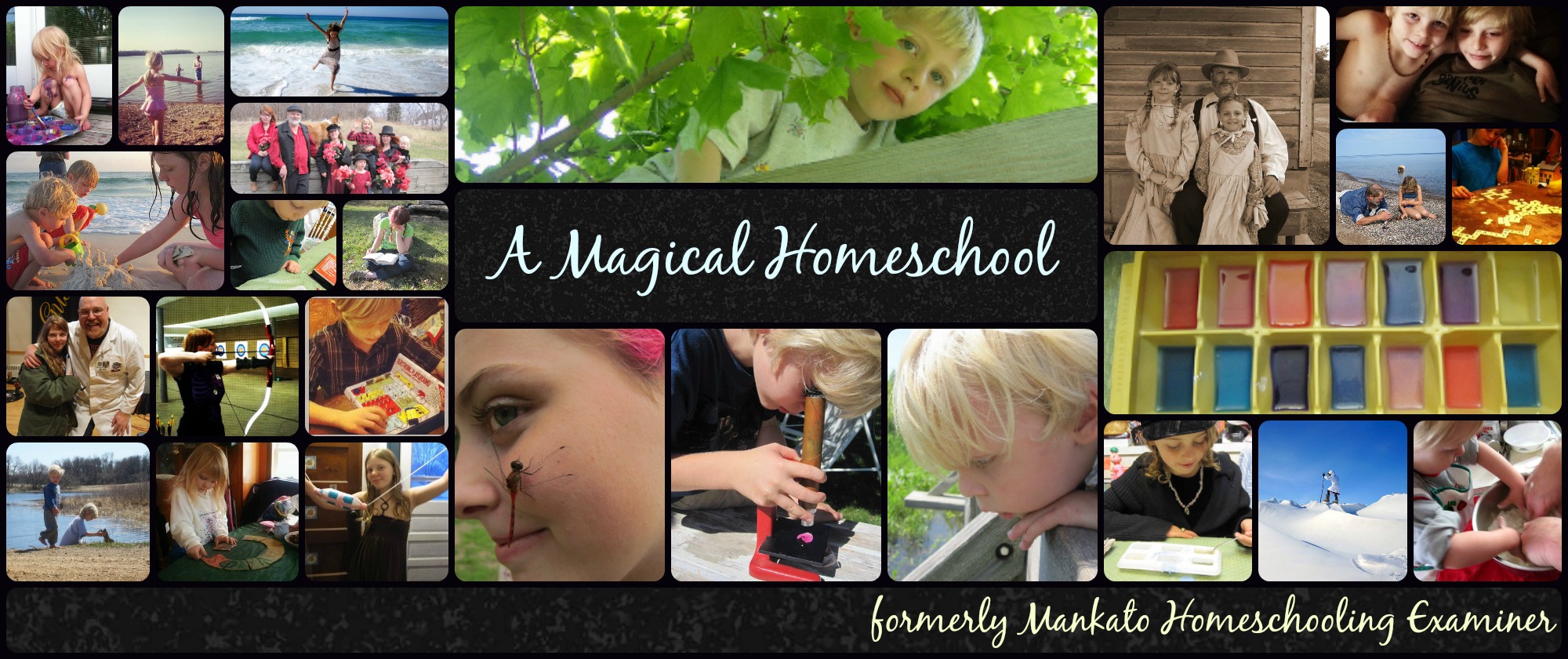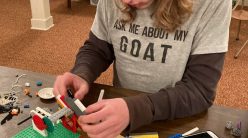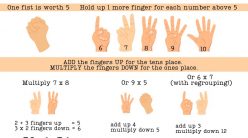
Whether you consider your family to be unschoolers or not, there are many aspects of unschooling that make homeschooling easier and more enjoyable for kids and parents alike.
What is unschooling? Pat Farenga, author of Teach Your Own: The John Holt Book of Homeschooling and many other unschooling books says:
This is also known as interest driven, child-led, natural, organic, eclectic, or self-directed learning. Lately, the term “unschooling” has come to be associated with the type of homeschooling that doesn’t use a fixed curriculum. When pressed, I define unschooling as allowing children as much freedom to learn in the world, as their parents can comfortably bear.
Here are five elements of unschooling that can enrich any homeschool:
Follow your children’s interests. Schools outside the home have so many students that it’s impossible to tailor the curriculum to them. One of the best things about homeschooling is that we have the freedom to adapt it to fit our children. If your child is fascinated with trains, it’s easy to find books, games, activities, web sites and lesson plans that use trains to teach. If a family field trip sparks an interest in the Gold Rush, use that as the focus for learning for the next week or two. It’s easy to work everything from reading to science to math in to any subject, and learning remains fresh and interesting to the kids.
Use games for learning. Visit any unschooling family and you’re bound to find more games for learning than you ever knew existed. From card games that feature Greek Gods like Zeus on the Loose to board games that teach about the bank bailout like Bailout! to web sites with games that teach everything from multiplication to grammar rules, unschooling parents know that games can make learning fun and easy.
Use life for learning. Another secret that unschooling parents know is that life is the best teacher. Children can learn math from following recipes (doubling, fractions, halving, etc.), botany from gardening, geometry from planning and building a tree fort, spelling from reading books and using spell check when they write on the computer and so forth. Real world problems (such as “this shirt was $38 and it’s marked 70% off, let’s figure out if you can afford it”) give these subjects relevance and make kids eager to learn. This also means going into the world and seeking out engaging ways to learn, such as visiting children’s museums, asking the vet if you can have a tour when you have your dog spayed, taking part in historic reenactments and so on.
Learn to strew. Strewing is a term coined by unschooling advocate Sandra Dodd, who wrote, “I think it is leaving material of interest around for our children to discover.” The idea is to leave interesting books, objects, games, natural items and such in children’s environment. An easy way to do this is with a rotating pile of engaging library books that you choose in addition to the ones the kids pick out. When theirs are all read, they’ll frequently dig through the others and end up finding new subjects or authors to love. Put out books featuring great art, science experiments for kids, Victorian fashions, origami, you name it. Some will spark interest, some not. Other good items include magnets, legos, games, pattern blocks, magnifying glasses, interesting rocks, new foods, art supplies, beeswax, musical instruments and more. Places can be strewn too. Kids’ interests can be piqued by a stop at a flea market, animal shelter, historic site, ethnic grocery, photography exhibit…
Trust children. The biggest fear that many parents have about unschooling is that if they don’t force their children to learn, they will choose to learn nothing. This makes sense if you’re used to battling your child every day to sit down and “do school” but it does not make sense in the real world of learning. Learning in its pure form is not an unpleasant thing. Forced learning becomes unpleasant to most people (children and adults) just as anything forced generally becomes unpleasant. If you loved gardening but people forced you to garden every day between the hours of 9 and 2, in exactly the ways and in the order they prescribed, how long would you love gardening?
Unschooling is not for everyone. Elements of the philosophy, however, are a wonderful fit for just about any homeschool family.





